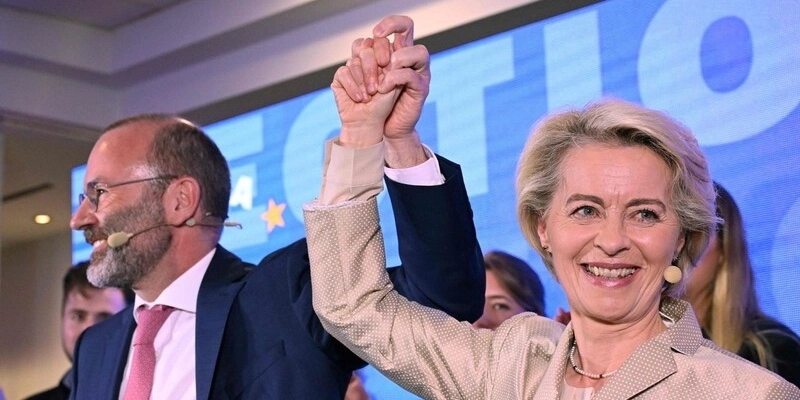Amid the post-electoral landscape, a crucial issue has strongly emerged: the future of internal combustion engines (ICE) and the European Union’s (EU) green policy.
Following the recent EU Parliament elections, the European People’s Party (EPP) has emerged as the central player, strengthening its influence in the chamber.
With approximately 184 projected legislators in assembly, the EPP has consolidated its position as the main centrist force on the continent.

In this context, Naomi Cambien, Policy Expert in Transportation at Bond Beter Leefmilieu (BBL), tells Mobility Portal Europe:
“For electric mobility, there is the explicit intention from the EPP to revise the phase-out of internal combustion vehicles, as soon as possible.”
Set for the year 2035, the EU expects this measure to be fundamental in meeting climate targets for 2040.
However, this election result has marked a significant turning point, especially considering the statements made by Jens Gieseke.

The EPP member of the European Parliament, from northern Germany, told local media: “Revoking the ban on combustion engines was one of our main demands in the election campaign.”
The group is expected to meet in Cascais, Portugal, from 2 to 5 July, with the aim of formulating their demands for the next legislative agenda of the EU Commission, including the review of CO2 standards for cars.
This measure would directly challenge Ursula von der Leyen, the current President of the Commission and a member of the EPP, who has been an advocate of the EU’s green policies throughout her term.
But this confrontation dates back further.
In fact, the EPP voted against the ban on combustion engines from 2035 when the EU Parliament approved the measure in July 2022.
In this context, Transport & Environment (T&E) has spoken out in favour of maintaining the phase-out of ICE cars sales.
However, it highlighted the importance of complementing this measure with the replacement of polluting vehicles.
Additionally, it stressed the need to avoid the growth of road traffic, electrify company automobiles, and promote a modal shift towards public transport and active mobility, among other actions.
“No single measure will be sufficient on its own,” says Carlos Rico, Policy Expert at T&E‘s Spanish office.
Meanwhile, Lucien Mathieu, the association’s Director of cars, states: “Maintaining the phase-out of combustion engines is the most important automotive policy for meeting the EU’s 2040 climate target.”

Thomas Schäfer, CEO of the Volkswagen brand, joins this debate.
The head of VW, Skoda, and Seat/Cupra comments on the toppic to the media outlet NZZ, highlighting: “I find the controversy surrounding the phase-out of combustion vehicles unhelpful.”
He indicates: “The real point is how we achieve the transition to sustainable mobility to reduce CO2 emissions in the transport sector, to which we all – politics, industry, and society – are committed.”
What solutions does he propose?
Aligned with T&E’s proposals, Schäfer maintains that, beyond political discussions, success will depend on having adequate charging infrastructure, affordable car models, and competitive electricity tariffs.
For the moment, what is being heard in the sector is that the EPP will soon meet to define its legislative agenda, including how to address CO2 regulations for cars.
This debate will be crucial in determining whether the ban is maintained or if a review is opened that could affect the course of electric mobility in Europe.
Nevertheless, in this scenario, Naomi Cambien emphasises: “We expect less ambition the coming years, but no major regression on the Green Deal implementation.”
She adds: “There is definitely still hope for advancing electric and sustainable mobility in Europe, depending on how coalitions form and the position key groups take on green policies.”
Additionally, she highlights that it will be essential for the Social Democrats and potentially the Greens to condition their support on maintaining the phase-out of combustion cars.








